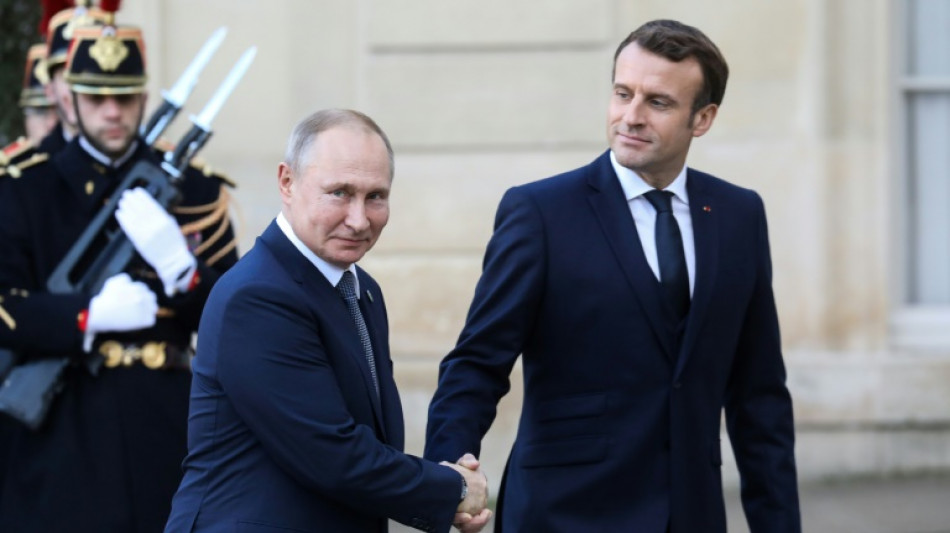
-
 Lives on hold in India's border villages with Pakistan
Lives on hold in India's border villages with Pakistan
-
Musk's dreams for Starbase city in Texas hang on vote
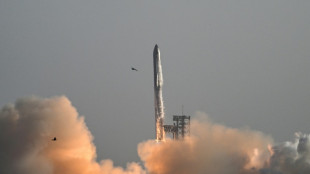
-
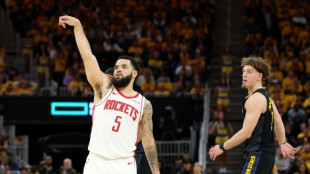 Rockets down Warriors to stay alive in NBA playoffs
Rockets down Warriors to stay alive in NBA playoffs
-
Garcia beaten by Romero in return from doping ban
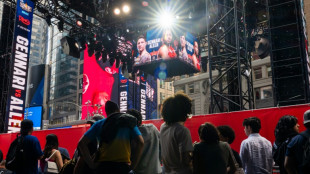
-
 Inflation, hotel prices curtail Japanese 'Golden Week' travels
Inflation, hotel prices curtail Japanese 'Golden Week' travels
-
Trump's next 100 days: Now comes the hard part
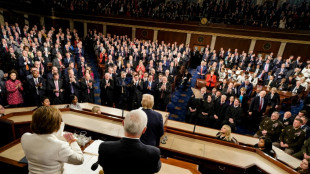
-
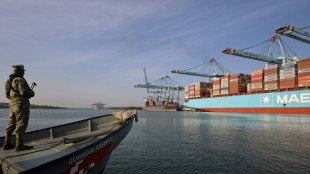 Mexican mega-port confronts Trump's tariff storm
Mexican mega-port confronts Trump's tariff storm
-
Trump's tariffs bite at quiet US ports
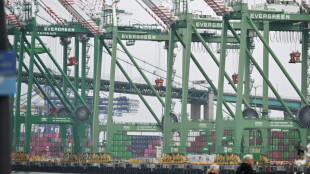
-
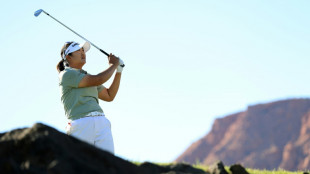 Ryu stretches lead at LPGA Black Desert Championship
Ryu stretches lead at LPGA Black Desert Championship
-
Singapore votes with new PM seeking strong mandate amid tariff turmoil
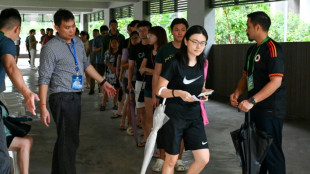
-
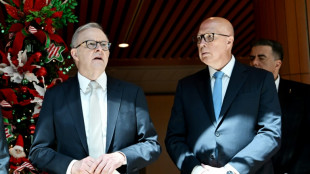 Five things to know about the Australian election
Five things to know about the Australian election
-
Scheffler fires 63 despite long delay to lead CJ Cup Byron Nelson
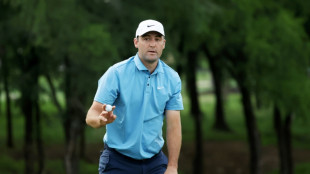
-
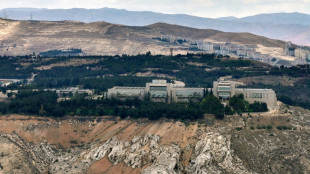 Israel launches new Syria strikes amid Druze tensions
Israel launches new Syria strikes amid Druze tensions
-
Finke grabs 400m medley victory over world record-holder Marchand
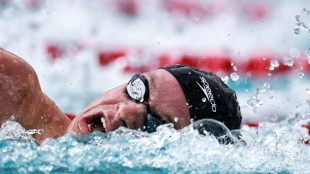
-
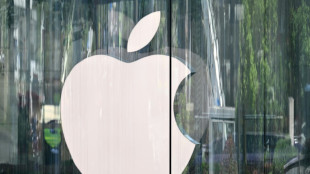 Apple eases App Store rules under court pressure
Apple eases App Store rules under court pressure
-
Polls open in Australian vote swayed by inflation, Trump
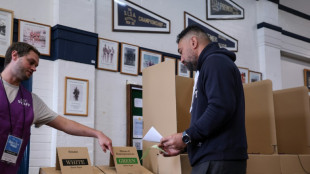
-
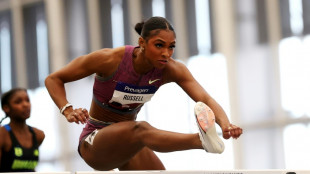 Russell clocks second fastest 100m hurdles in history at Miami meeting
Russell clocks second fastest 100m hurdles in history at Miami meeting
-
Germany move against far-right AfD sets off US quarrel
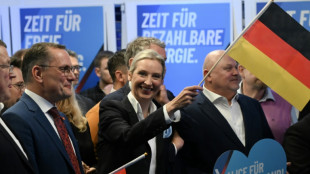
-
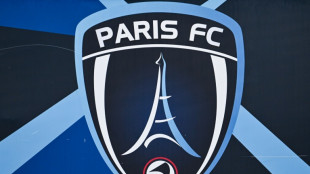 Billionaire-owned Paris FC win promotion and prepare to take on PSG
Billionaire-owned Paris FC win promotion and prepare to take on PSG
-
Teenager Antonelli grabs pole for Miami sprint race
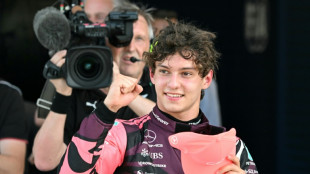
-
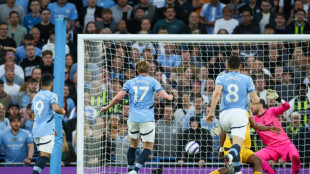 Man City climb to third as De Bruyne sinks Wolves
Man City climb to third as De Bruyne sinks Wolves
-
Mercedes' Wolff backs Hamilton to come good with Ferrari
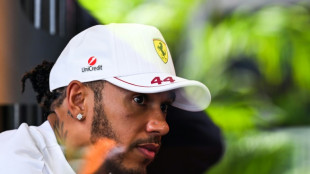
-
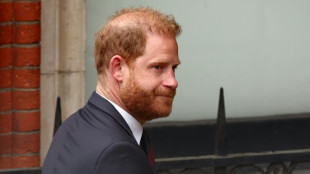 'Devastated' Prince Harry says no UK return but seeks reconciliation
'Devastated' Prince Harry says no UK return but seeks reconciliation
-
Elway agent death likely accidental: report
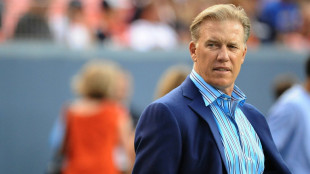
-
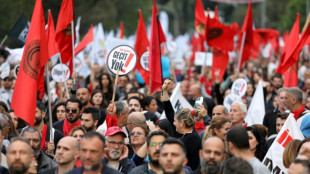 Turkish Cypriots protest new rule allowing hijab in school
Turkish Cypriots protest new rule allowing hijab in school
-
Germany's AfD dealt blow with right-wing extremist label
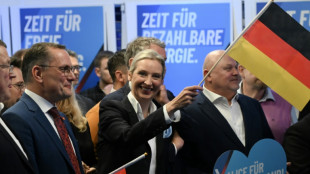
-
 Trump NASA budget prioritizes Moon, Mars missions over research
Trump NASA budget prioritizes Moon, Mars missions over research
-
Hard-right romps through UK polls slapping aside main parties
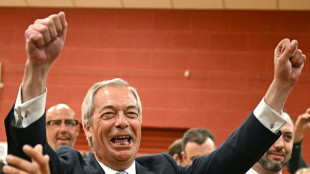
-
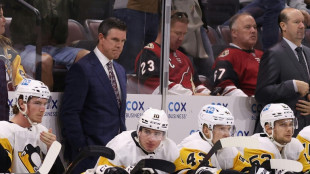 Rangers hire two-time NHL champion Sullivan as coach
Rangers hire two-time NHL champion Sullivan as coach
-
Haaland on bench for Man City as striker returns ahead of schedule
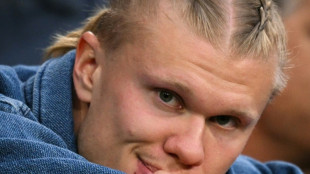
-
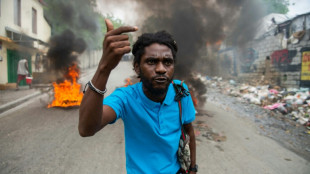 US designates two Haitian gangs as terror groups
US designates two Haitian gangs as terror groups
-
Lower profits at US oil giants amid fall in crude prices

-
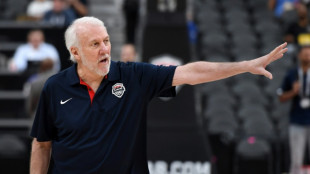 NBA icon Popovich stepping down as Spurs coach after 29 seasons
NBA icon Popovich stepping down as Spurs coach after 29 seasons
-
'Devastated' Prince Harry says no return to UK but seeks royal reconciliation
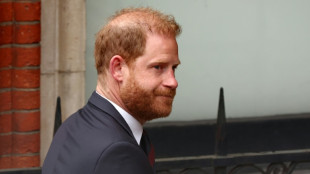
-
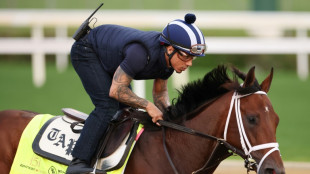 Grande scratched from Kentucky Derby
Grande scratched from Kentucky Derby
-
Carney vows to transform Canada economy to withstand Trump
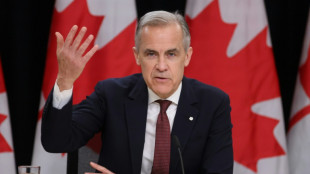
-
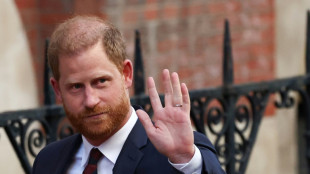 Prince Harry says he would 'love' to reconcile with family
Prince Harry says he would 'love' to reconcile with family
-
Major offshore quake causes tsunami scare in Chile, Argentina
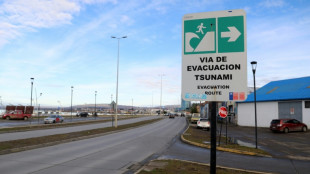
-
 GM cuts shift at Canada plant over 'evolving trade environment'
GM cuts shift at Canada plant over 'evolving trade environment'
-
F1 extends deal to keep Miami GP until 2041

-
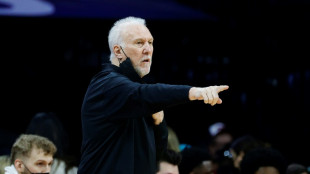 Popovich mixed toughness and spirit to make NBA history
Popovich mixed toughness and spirit to make NBA history
-
US asks judge to break up Google's ad tech business
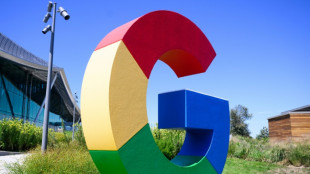
-
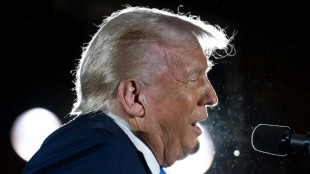 Trump eyes huge 'woke' cuts in budget blueprint
Trump eyes huge 'woke' cuts in budget blueprint
-
Ruud downs Cerundolo to book spot in Madrid Open final
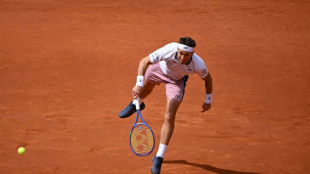
-
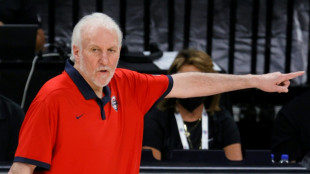 Gregg Popovich stepping down as San Antonio Spurs coach after 29 seasons: team
Gregg Popovich stepping down as San Antonio Spurs coach after 29 seasons: team
-
Guardiola to take break from football when he leaves Man City
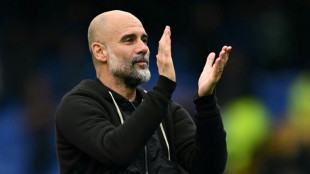
-
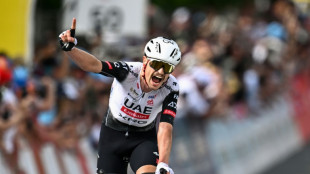 Vine escapes to Tour of Romandie 3rd stage win as Baudin keeps lead
Vine escapes to Tour of Romandie 3rd stage win as Baudin keeps lead
-
Olympic 100m medalist Kerley arrested, out of Miami Grand Slam meet
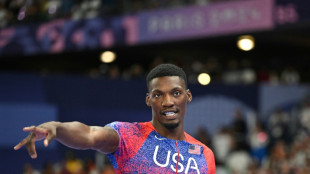
-
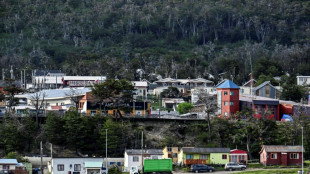 Chile, Argentina order evacuations over post-quake tsunami threat
Chile, Argentina order evacuations over post-quake tsunami threat
-
Arteta 'pain' as Arsenal fall short in Premier League title race
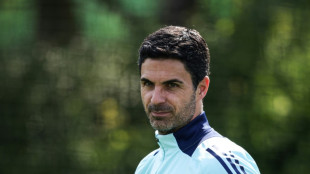

Macron the mediator wades into Russia-Ukraine crisis
French President Emmanuel Macron will fly to Russia and Ukraine next week in an attempt to avert conflict between the neighbours, reprising his role as a crisis mediator that has produced limited results in the past.
The 44-year-old leader, who is facing elections in April, has repeatedly thrown himself into the search for solutions to some of the world's most acute diplomatic problems from Iran's nuclear programme to Libya's civil war.
His latest attempts to lower tensions between Russian President Vladimir Putin and Ukrainian counterpart Volodymyr Zelensky are consistent with the two main features of his thrusting foreign policy since coming to power in 2017.
He has always argued that Europe and the European Union should take greater charge of its own defence and security, and has sought to push France forward on the international stage with what he describes as "diplomacy of audacity."
He laid out this philosophy in front of French ambassadors in 2019, telling them that Europe risked disappearing unless it stood up for itself and arguing that the only choice was "to take part in the game and use our weight".
"I believe in one thing: it's a strategy of audacity and taking risks," he said.
- Setbacks -
This approach has led to some highly public setbacks, particularly early in his term, which some critics think revealed his naivety and France's limitations as a middle-ranking world power.
"France has a long tradition of mediating, but Emmanuel Macron in particular has wanted to be a sort of balancing power," said Bruno Tertrais from the Foundation for Strategic Research think-tank in Paris.
"It's striking, however, how his efforts have rarely led to success."
Some of his failures include an initiative to try to broker a solution to the Libyan civil war in 2017 which caused friction with EU partner Italy and led to criticism that France was secretly supporting a local warlord.
On the Iran nuclear crisis, Macron repeatedly tried to broker direct talks between former US president Donald Trump and Tehran, even flying the Iranian foreign minister unannounced to a G7 meeting in France in 2019 -- in vain.
Following a huge port explosion in Beirut that brought down the government in Lebanon in 2020, Macron visited the disaster scene, sleeves rolled up, and promised to help bring about a "new political order."
There has been no radical reform since and Lebanon remains mired in crisis.
The summer before, in 2019, he invited Putin to his summer holiday residence in a surprise attempt to try to reset relations, which went down badly in eastern Europe where EU countries feel most threatened by the Kremlin.
"You can't criticise Emmanuel Macron for trying to launch mediation efforts, but you can criticise him in some situations for doing it on his own," Tertrais added.
He said one success was that Macron's "quite spectacular" intervention in 2017 to free Lebanon's then prime minister Saad Hariri after he was effectively detained in Saudi Arabia.
- Multi-track diplomacy -
Analysts are unsure what the French leader can achieve during his visits to Moscow and Kyiv on Monday and Tuesday to deescalate a crisis sparked by the massing of around 100,000 Russian troops on Ukraine's border.
Tatiana Kastoueva-Jean at the French Institute of International Relations (IFRI) said that Putin saw Macron as the de-facto leader of Europe after German chancellor Angela Merkel stepped down in December after 16 years in power.
"In Germany, the new coalition government is still getting up to speed," she said. "So Macron is the voice of Europe in talks with Putin."
France also currently holds the rotating presidency of the 27-member bloc.
Michel Duclos, a former ambassador at the Montaigne Institute, a Paris-based think-tank, said the French president had been wise not to build up expectations and appeared to be coordinating better with EU allies.
"You get the impression he has learned from his previous failures," he told AFP.
At home, political observers are unsure how the flurry of diplomacy will influence Macron's re-election chances.
With the first round of the election looming on April 10, Macron will also have to decide in coming weeks whether to pull out a French force deployed in Mali in west Africa where relations with the ruling military junta have broken down.
Macron's attempted peace-making "reinforces his international stature" but brings with it the risk of failure which opponents would use, a French lawmaker close to Macron told AFP this week, asking not to be named.
"He has to show that he can obtain concrete results."
J.Oliveira--AMWN